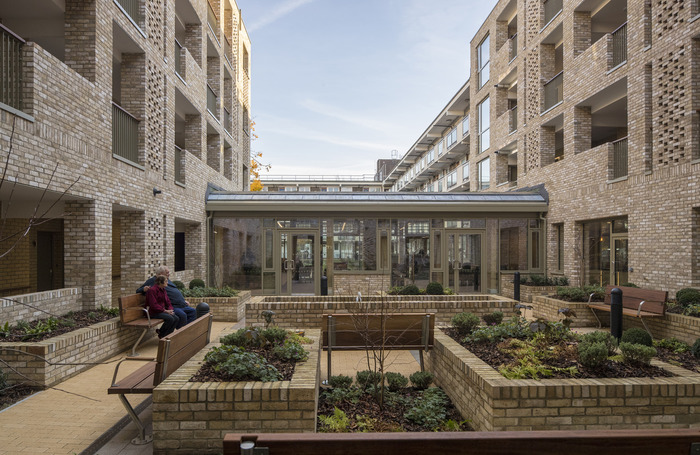The government has announced a three-year extension to its funding programme for specialist affordable housing schemes for older people and adults with disabilities or mental health problems.
The Care and Support Specialised Housing Fund (CASSH) was due to end this year after two three-year phases, but will now get an additional £76m a year until March 2021. Housing providers have already built around 3,300 homes designed to be accessible and aid independent living through the scheme.

The CASSH fund is administered by Homes England with the exception of London where funding bids must be submitted to the mayor.
Bidding is open to housing associations, local authorities, private sector developers and community groups, although organisations that are new to bidding for Care and Support Offer funding from Homes England will have to get on the system.
The extended programme has switched from bidding rounds to a rolling programme until funding for each year has been allocated. Minister for Care Caroline Dinenage said she wants the fund to be used to its maximum potential to create more homes, more quickly.
The government has published updated guidance on the new continuous market engagement (CME) phase of the CASSH programme.
The extended programme is a continuation of the previous CASSH programme set out in the prospectus for CASSH phase two, except that the additional priorities introduced in phase two – housing for adults with mental health problems, and affordable housing provided as part of mixed tenure sites alongside private market housing – no longer apply.
On the design front, bids will have to provide a description of the proposed design to show how the scheme will help residents to achieve optimal quality of life within their homes, including consideration of their future needs.
This statement should demonstrate where the scheme is meeting current good practice, for example by including a response to the 10 HAPPI (Housing our Ageing Population: Panel for Innovation) design principles, or provide examples of innovative design elements that will enable owners and tenants to live independently.
The guidance adds that each scheme must be able to stand alone without cross subsidy or interdependence with other schemes submitted for funding by the same housing provider.
Julia Park, chair of the RIBA Housing Group and co-author of ‘Age Friendly Housing: Future design for older people’, says confirmation of the extended programme is welcome for bringing back funding assurances for the next three years.
‘One of the problems is that specialist housing developers are very risk averse. We [at Levitt Bernstein] have noticed a slowdown in supported housing projects, which was probably related to uncertainty over the continuation of CASSH funding. Getting certainty back should help to get projects moving again,’ says Park.
Thanks to Julia Park, Head of Housing Research, Levitt Bernstein.
Text by Neal Morris. This is a Professional Feature edited by the RIBA Practice team. Send us your feedback and ideas
RIBA Core Curriculum Topic: Inclusive environments.
As part of the flexible RIBA CPD programme, Professional Features count as microlearning. See further information on the updated RIBA CPD Core Curriculum and on fulfilling your CPD requirements as an RIBA Chartered Member.









